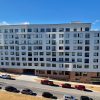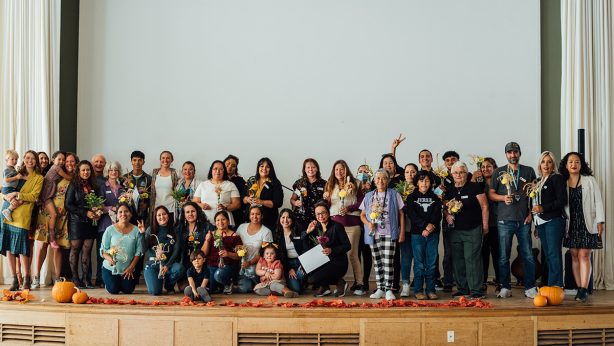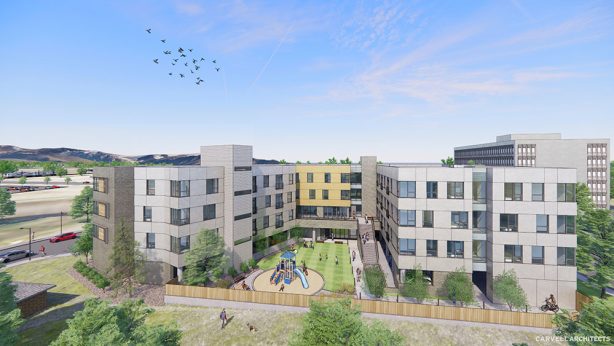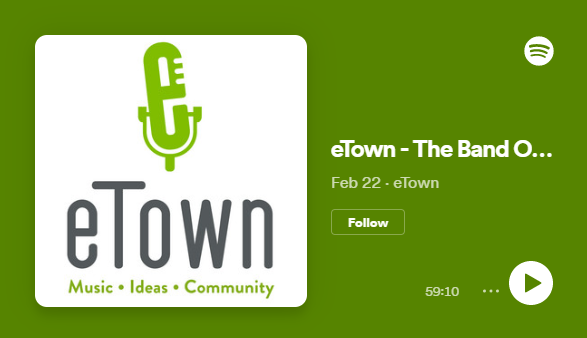
One Year Later: What I Hope We’ve Learned
One Year Later: What I Hope We’ve Learned
A Message from Aaron Miripol, President & CEO of ULC

A year ago, this week, ULC staff packed up their laptops, grabbed a few files, and switched to working remotely from home for what we thought would be a few weeks. I can proudly say, everyone at ULC quickly pivoted to take on the unknown of the pandemic. While seeking and sharing credible health information with partners and constituents, we put our heads down and stayed focused on the urgency of our mission to support our residents and nonprofit organizations.
A year later, 121.7 million people worldwide have been infected by COVID-19, and nearly 2.7M have tragically died from it. In the United State alone 29.7 million Americans, 9% of the population, have been infected, and nearly 540,000 have died from Covid. Some of us have lost family members and friends; others have been more fortunate to only know of these tragedies from afar.
Today, most ULC staff are still working remotely, finding hope for a return to some kind of normal with vaccines. However, one thing is clear: we’re not going completely back to normal, nor should we be. The pandemic has provided a glimpse into what many Americans (and communities around the world) deal with on a regular basis—a never-ending pandemic of inequity, poverty, and oppression, and it’s clear that ‘normal” must be different moving forward.
Here are six lessons (not listed in order of importance) I hope we take to heart—ones that could facilitate significant, lasting change.
Housing is health. Before the pandemic, Colorado had nearly 580,000 households that were cost-burdened, spending, in many cases, half of their income or more on housing costs. The pace of affordable housing development continues to be outpaced by demand, and, sadly, many have fallen deeper into poverty over this past year. All-the-while, the median price of housing has continued to skyrocket. In addition to the emergency rental and mortgage assistance and temporary moratorium on evictions, more permanent funding needs to be provided for those desperately in need of affordable options.
Affordable workspace is needed. While many have found it manageable, or even preferable, to work remotely during this pandemic, others haven’t had that option. ULC’s mission includes preserving, developing, and managing permanently affordable, shared office space for nonprofits and mission-minded organizations—many who use their space to provide services and amenities to their communities. On average, our nonprofit tenants pay 48% below-market-rate. Yet, even with deeply discounted space and efforts to support tenants during this time, a few of our 60 tenants have had to relinquish their space over the past year. Others contemplate it. No one knows what the future holds in terms of how we use office space, but affordable options make it easier to weather the ups and downs of the economy and other unforeseen events, and we remain committed to providing these options.
Health for one is health for all. Health disparities for people of color and other marginalized groups have been widely researched and reported for decades. But this fact was brought into the sharpest relief over the past year. The CDC reports that Native Americans have died from COVID-19 at 2.4 times the rate of white non-Hispanic Americans; Latinix 2.3 times; and African Americans at 1.9 times the rate of whites. This is mostly due to underlying conditions that affect health including socioeconomic status, access to health care, and exposure to the virus related to occupation (e.g., frontline, essential, and critical infrastructure workers). It is evident that we cannot address health universally unless we provide accessible health care and quality living conditions for everyone.
A healthy workforce means a healthy population and economy. Workforce disparities have also been brought squarely into focus over the course of the pandemic, as more than 4.5 million child care workers (primarily women) lost work this past year. And with drastic reductions in supervised school-hours, tens of millions more (again, disproportionately women) were forced to quit or were fired from their jobs. This decline of women in the workforce, especially women of color, could lead to a significant reversal in gains made towards equitable pay for women and will impact the overall economy for years to come. Clearly, the pandemic has exposed the vulnerabilities our country has created by not investing in and maintaining family-friendly workplace standards and a robust child care system.
Racial injustice is the other pandemic. Some of the most stirring images of the past year include masked people of all races taking to the streets to protest inequities in the justice system, specifically murders by police of Breonna Taylor, George Floyd, and others. Clearly, systems of racism, xenophobia, and systemic oppression, further compounded by a deadly virus and heightened political polarization, have broken the dam. With the experience of living through Covid, we should all be awakened to the reality that living one’s life in fear of a deadly threat takes a toll. Everyone is entitled to the rights afforded by our constitution and legal systems. Everyone! If that isn’t happening, the systems need to be changed.
We can do more than we thought we could. In addition to the many challenges brought to light this past year, there have been positive revelations as well. We have learned to value what is most significant in life: relationships. And we now see how much we can achieve, quickly and effectively in an emergency (of special note are the frontline healthcare workers who have met this moment with unparalleled courage). Even in a pandemic, our staff and partners proved that the work must continue. We, along with our partners, Medici, Brinshsore, and Mile High Development, completed and brought online 200 permanently affordable homes at Walnut Lofts and Sheridan Station. We also completed a groundbreaking net-zero electric and sustainability project in Aurora and broke ground with our development partner Columbia Ventures on a mixed-use community in Elyria-Swansea which will be the site for 150 permanently affordable apartments and Tepeyac Community Health Center’s new medical facility.
Understanding the need for change is more important now than ever. Let’s hold on to that urgency and continue working for the lives of those who are constantly threatened by the “pandemic of gross disparity,” long after the coronavirus is behind us.
The work continues,
Aaron Miripol





